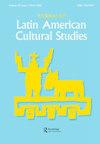Contesting the Neoliberal City: Place-Based Activism in the Documentary Films of Barrio Anti-Gentrification Movements in Bogotá and Mexico City
IF 0.3
4区 社会学
Q4 CULTURAL STUDIES
引用次数: 0
Abstract
This study explores how barrio social movements in Bogotá and Mexico City fight gentrification by making everyday life visible in films. An analysis of two communally produced documentary videos examines how the portrayal of stories that detail people’s affective ties to places targets the pillars of neoliberalism – that is, the reduction of human relations to market exchanges and the prevalence of private property over collective rights. After some background on the urban areas at stake, I study how the films foreground processes of place-making by portraying everyday family and communal work routines and explain how these depictions not only humanise space, in opposition to the abstract understanding of space to which urban plans aspire, but also allow residents to claim the neighbourhoods as collective property. The analysis demonstrates that by making everydayness visible, grassroots organisations position themselves as place-makers, creating a local culture capable of countering the discourses through which neoliberalism justifies the necessity of urban renewal.争夺新自由主义城市:波哥大和墨西哥城巴里奥反绅士化运动纪录片中的地方激进主义
本研究探讨波哥大和墨西哥城的贫民区社会运动如何通过在电影中展现日常生活来对抗士绅化。通过对两部由社区制作的纪录片的分析,我们可以发现,这些描述人们与地方的情感联系的故事,是如何瞄准新自由主义的支柱的——也就是说,将人际关系减少到市场交换,以及将私有财产置于集体权利之上。在对城市地区进行了一些背景研究之后,我研究了电影如何通过描绘日常家庭和公共工作惯例来突出场所制造的过程,并解释了这些描绘如何不仅使空间人性化,与城市规划所渴望的对空间的抽象理解相反,而且还允许居民将社区作为集体财产。分析表明,通过使日常可见,基层组织将自己定位为场所制造者,创造一种能够对抗新自由主义为城市更新必要性辩护的话语的地方文化。
本文章由计算机程序翻译,如有差异,请以英文原文为准。
求助全文
约1分钟内获得全文
求助全文

 求助内容:
求助内容: 应助结果提醒方式:
应助结果提醒方式:


